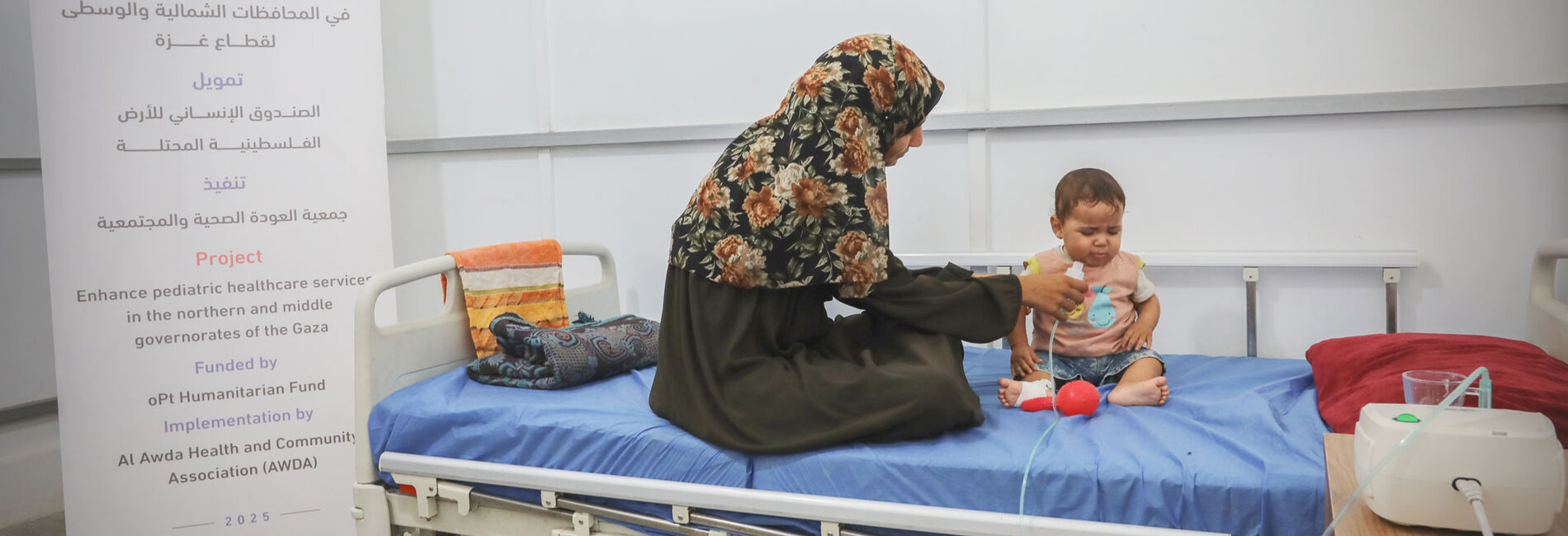A battle for breath in Gaza: Al-Awda Hospital’s lifesaving work for children
In northern Gaza, amid bombardment and mass displacement, Al-Awda Hospital became a rare beacon of hope. In 2024, when most medical facilities around it had been forced to close, it remained one of the few still operating – albeit partially – and for many families, the only lifeline left to turn to.
Among those families were that of fourteen-month-old Hiba.* Like many children in Gaza, she fell ill as living conditions deteriorated. In August 2024, her breathing grew weaker by the day until her family rushed her, nearly unconscious, to Al-Awda Hospital. When she arrived, doctors found that her oxygen level had dropped dangerously low. She was diagnosed with acute pneumonia and bronchitis – illnesses that can easily be fatal for a child in Gaza’s collapsing health system. The medical team placed her on oxygen and began intensive treatment and monitoring. Her breathing stabilized, and she slowly regained her strength.
That year, with support from the occupied Palestinian territory Humanitarian Fund (oPt HF), Al-Awda Health and Community Association expanded paediatric services in its two hospitals in the Gaza Strip – including Al-Awda Hospital in the north. The project strengthened emergency departments and established a 15-bed paediatric ward to ensure that children like Hiba could access specialized free-of-charge care. Medical staff received training in emergency response, infection control, and child protection.
Hiba recovered – and she is not the only one. Around the same time, seven-month-old Maha* was brought to Al-Awda Hospital in critical condition. She was suffering from acute chest inflammation and asthma, with severe shortness of breath, dangerously low oxygen levels, and disrupted vital functions. She received oxygen therapy, antibiotics, and nebulizer treatment and – gradually – her condition improved. “This project was our sanctuary,” her mother said. “With major hospitals out of reach, having specialized medical services nearby was a true blessing.”
Together, Hiba and Maha’s stories highlight the critical importance of continued support for health care in Gaza, where hospitals and families persevere despite ongoing challenges.
Today, a fragile but critical ceasefire offers a window for recovery. Needs across Gaza remain immense. Hospitals like Al-Awda continue to operate amid severe shortages, striving to uphold the basic right to health for thousands of children. Sustained humanitarian support is essential to help Gaza’s health system recover and ensure that every child has access to the care they deserve.
* Names have been changed to protect the safety and privacy of the families.










